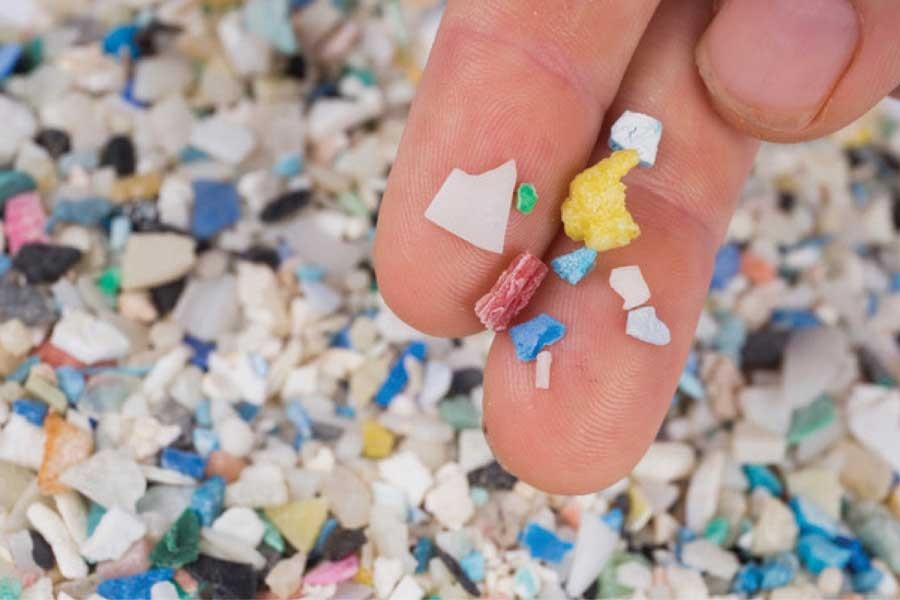A recent study by local researchers on the failure of effluent treatment plants (ETPs) installed in our industries to treat microplastics (MPs) has been published in the 'Journal of Hazardous Materials Advances'. Hence microplastic-contaminated water being released by factories is emerging as a serious public health hazard and to the detriment of the environment. In fact, MPs' pollution is a major problem globally and poses health risks to humans. The study informs us that the filtration system used in ETPs remove solid waste particles.
Data from the United Nations Environment Programme (UNEP) tell us that plastic production increased by around 9.0 per cent from 2016 to 2019 globally. Also, COVID-19 brought about the massive increase in disposable plastics, like, gloves, masks, syringes, goggles, gowns, etc., and most of these disposable items are made of plastic.
The researchers collected samples from 11 industrial inlet and outlet water with sludge from different industries including dyeing, washing, printing, battery and pharmaceuticals during the September - October period from factories in Dhaka, Gazipur and Narayanganj. Their research shows that MPs have found their way into the food chain, primarily because ETPs can only manage to remove about 62 per cent of overall contaminants, leaving 38 per cent of contaminants to pollute the environment.
What it all boils down to is that the presence of MPs creates environmental problems. Surface water receives a significant amount of wastewater that is either untreated or partially treated. MPs entering fresh water reservoirs like rivers, canals affect the aquatic organisms. MPs' removal efficacy depends a lot on treatment technologies. All the industries where samples were collected and studied showed "an extended level of MPs in the sludge rather than water samples in all investigated industries."
Urbanism and industrialisation will inevitably bring about activities that will increase MPs and given the material's presence in sludge and waste water from industry, proper policies need to be formulated in order to counter this hazard. Industries surveyed ought to use ETPs, but many of them either do not have access to ETPs or do not use them. It must be made mandatory for industries to use the correct type of ETP technology. Unfortunately the government does not have any specific policy on MPs released to the environment.
Then there is the question of monitoring and inspection. It appears, there is no monitoring system or policy to control MPs released from industries. One of the researchers, Professor Tareq, stated that "ETPs in use in Bangladesh are mostly imported from China and India which are partially efficient to treat microplastics." The problem with sludge waste is that it spreads into river systems during monsoon rainfall, which then becomes a problem for drinking water. Unless city authorities treat river water properly, MPs will inevitably end up in the piped water systems in urban centres. And as researchers have pointed out, MPs cannot be purified by boiling water, those require specific treatment processes for removal from water.
It was found that pharmaceutical industries had the highest quantity of MPs in sludge, while dyeing industries had highest levels of MPs in inlet and outlets around these factories. The government has agencies to monitor effluent discharge, but no monitoring system to control the discharge of MPs and there lies the problem. With industries releasing effluent containing MPs, it would be prudent to start a review of the existing policies aimed at controlling the harmful particles and developing / importing appropriate technologies that can treat those in industries' wastewater.


